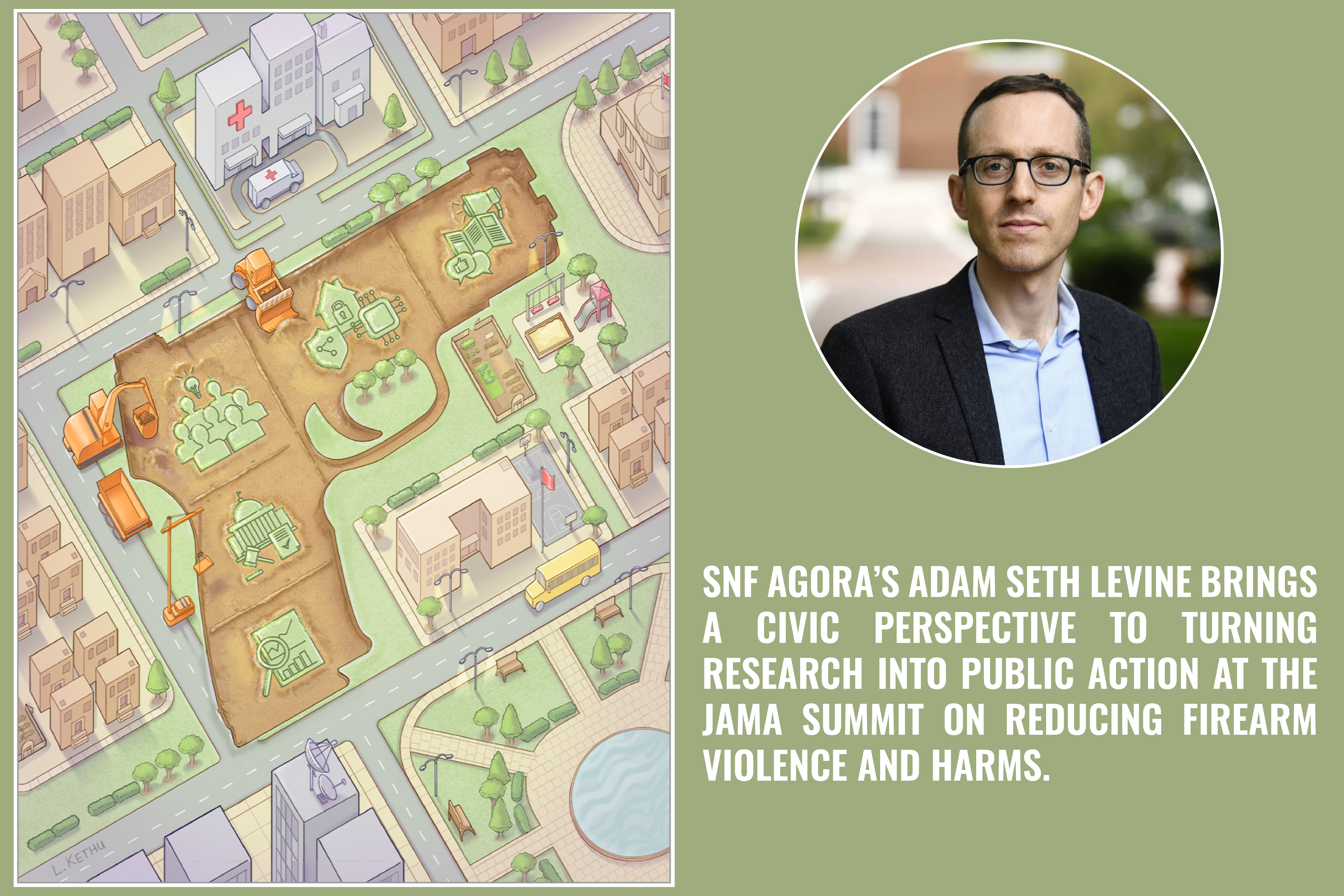
The Journal of the American Medical Association (JAMA) Summit on Reducing Firearm Violence and Harms earlier this year brought together leaders in medicine, public health, criminology, sociology, law, engineering, and policy to chart an “innovations roadmap” for cutting firearm deaths and injuries by 2040.
Among the participants was Adam Seth Levine, Stavros Niarchos Foundation Agora Institute Professor of Health Policy and Management in the Bloomberg School of Public Health. He was the only political scientist in the room. “My role was to think about how scientific evidence on firearms connects to society, how it gets used, and how it shapes what happens next,” he said.
The summit’s report, Toward a Safer World by 2040, published in JAMA on November 3, 2025, describes a vision of a country where firearm harm is rare and every community feels safe. It calls for solutions grounded in evidence and shared responsibility. “There’s good evidence on how to reduce gun violence,” Levine said. “But that evidence doesn’t always make its way into policy.”
His contribution focused on helping people in affected communities see themselves as agents of change, what he calls small-d democratic agency. “It’s not enough to tell stories about harm,” he said. “To create political will, people also need to feel that they can act. That requires collaboration among community members, policymakers, researchers, and law enforcement.”
Levine describes this work through a simple image: evidence has a seat at the table but not the head. “Research on its own often doesn’t tell us what to do,” he said. “Decision makers also weigh economic, legal, ethical, political, and historical factors. The role of evidence is to inform those conversations, not to rule them. It belongs at the table, alongside other perspectives, helping people work together to decide what kind of communities they want to build. The promise of scientific knowledge is that it offers a reliable way to understand the world so that we can ask, ‘Now that we know this, what should we do?’”
“This is about connecting science to society,” he said. “It’s about creating partnerships that make knowledge useful.” He sees that work as part of a broader effort at Johns Hopkins to link scientific discovery with civic action. For decades, researchers at the Bloomberg School of Public Health have shaped national understanding of firearm injury prevention through data and policy research. That research guided the summit’s discussions. Levine builds on that legacy by studying how research meets civic life and the conditions under which communities use evidence to participate in collective problem-solving.
Levine believes that gathering around shared facts is as important as the data itself. “When people gather to talk about what the evidence shows, they’re also deciding who they want to be as a community,” he said. “That’s the heart of democracy.” He and others hope that future convenings will continue this work in new settings, where research and civic collaboration meet to create change.

